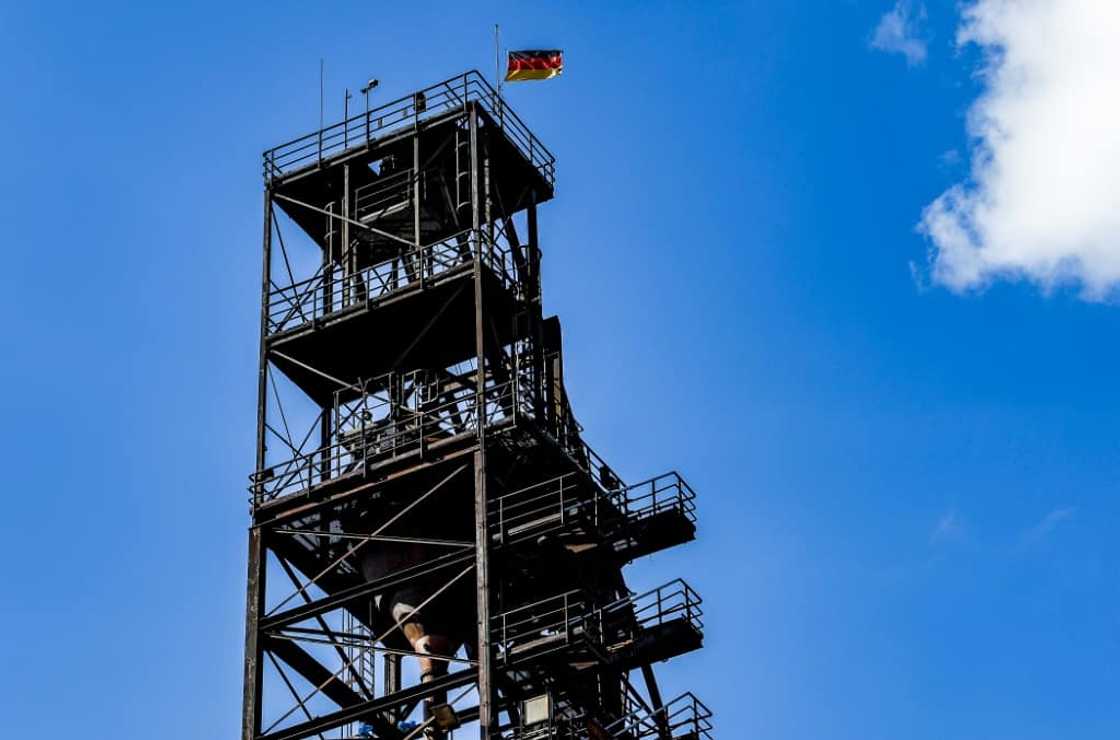Germany lifts growth forecast as outlook brightens

Source: AFP
PAY ATTENTION: Celebrate South African innovators, leaders and trailblazers with us! Click to check out Women of Wonder 2022 by Briefly News!
The German government Wednesday lifted its growth forecast for this year as rebounding industrial production and slowing inflation helped Europe's top economy weather an energy crisis.
The manufacturing powerhouse is forecast to grow 0.4 percent in 2023, the economy ministry said in its latest projections.
The prediction highlighted a steady improvement in Germany's fortunes since Russia's invasion of Ukraine last year triggered the energy crisis and sparked fears of recession.
The government's last forecast in January was for 0.2 percent expansion, and back in October it had predicted a contraction of 0.4 percent in 2023.
Economy Minister Robert Habeck said the improved forecast was "truly remarkable", given the difficult backdrop.
"The German economy has proven to be adaptable and resilient," he told a press conference, adding that a "gradual recovery" was under way.
PAY ATTENTION: Follow Briefly News on Twitter and never miss the hottest topics! Find us at @brieflyza!
Germany was particularly hard hit by Moscow's invasion of Ukraine and its subsequent reduction of gas deliveries, as the country's export-oriented economy had come to rely heavily on cheap Russian energy.
But Berlin introduced massive relief measures to cushion consumers and businesses, and rushed to diversify its energy supplies.
Relatively mild winter weather also meant that gas storage was not depleted as quickly as some had feared.
Habeck praised the "enormous savings efforts by German consumers and German industry" that helped the country to get through the winter without energy shortages.
But he also warned that such efforts must continue: "It was just a few weeks ago when we did not know how we would get through the winter. Our memories should not be short."
China reopening boost
Gas prices have fallen heavily in recent months, helping to bring down inflation from a decades-high peak of 8.8 percent in October. It stood at 7.4 percent in March.
In addition, lower energy prices and the reopening of China's economy after long Covid shutdowns have boosted Germany's vast industrial sector in recent months.
The economy ministry noted that indicators such as industrial production and business climate surveys indicated improving economic prospects later in the year.
The ministry forecast the recovery would gather pace next year, with the economy to grow 1.6 percent.
It predicted inflation would come in at 5.9 percent this year, and 2.7 percent in 2024.
Despite the brightening picture, the German economy still faces many challenges.
Habeck lamented the "dramatic" shortage of skilled workers.
According to the federal Institute for Employment Research, just under two million job posts were unfilled at the end of 2022 in Germany.
The economy ministry also said that high inflation was still set to weigh on the economy throughout the year, with consumers' purchasing power hit.
The impact of slowing inflation would only be felt later in the year, it said.
On Friday, preliminary first quarter growth data will be released, which is expected to show the economy eked out weak growth and dodged a recession.
The economy suffered a shock 0.4 percent contraction in the final three months of last year as the fallout from the Ukraine war hit home.
PAY ATTENTION: Сheck out news that is picked exactly for YOU ➡️ click on “Recommended for you” and enjoy!
Source: AFP




